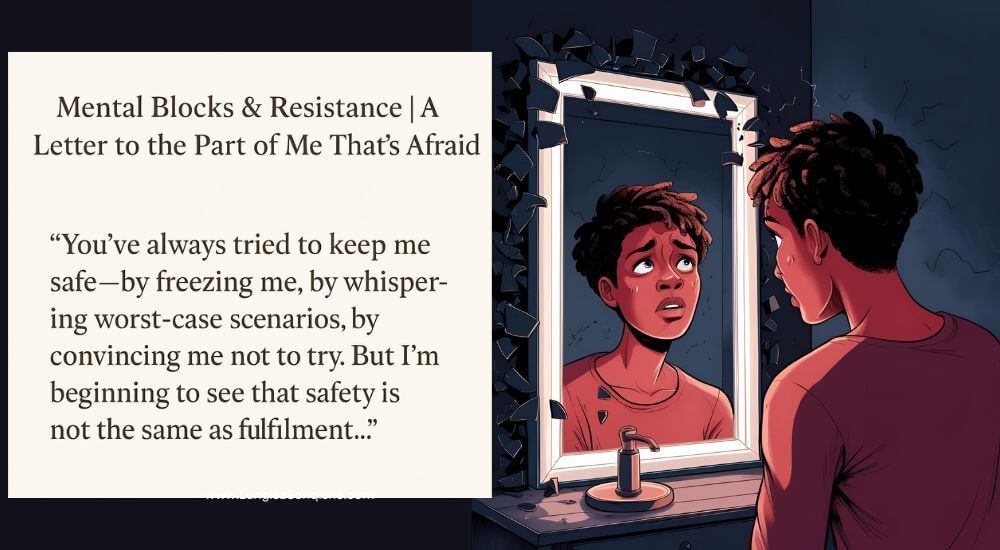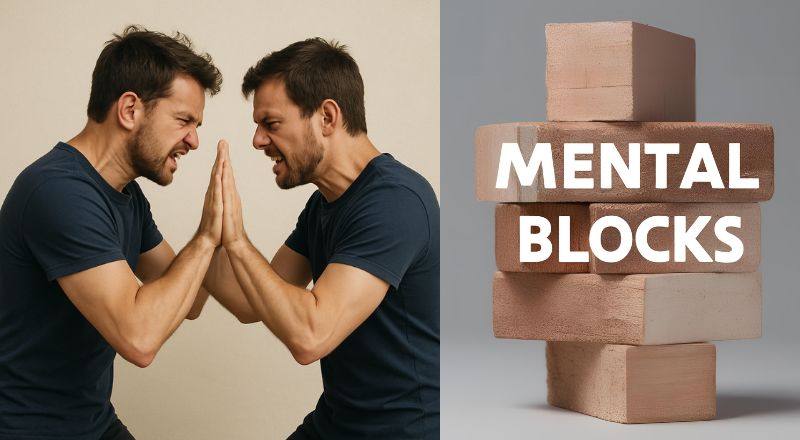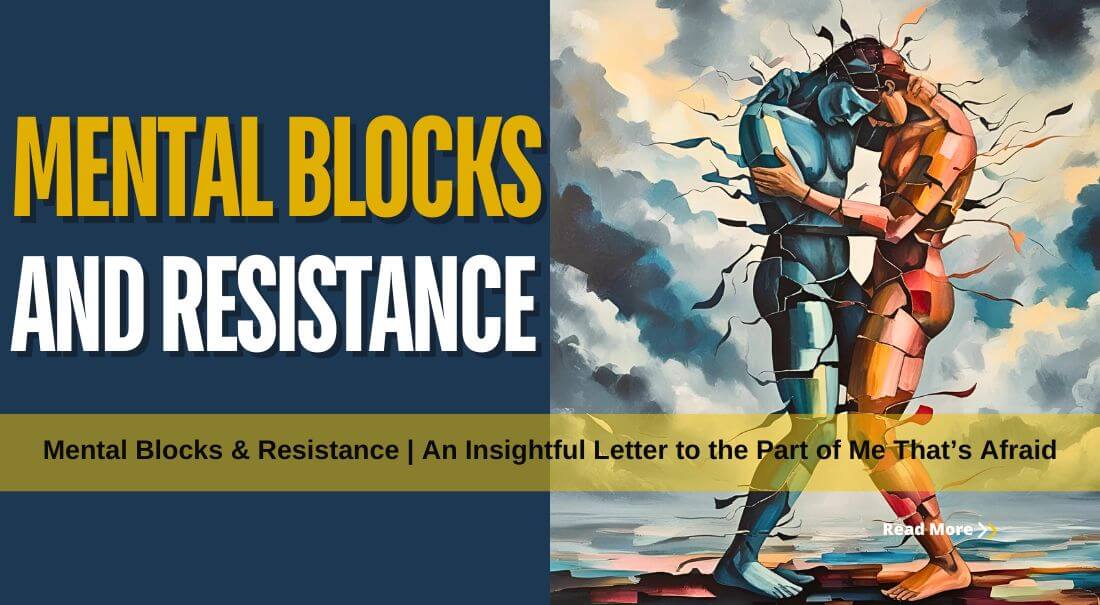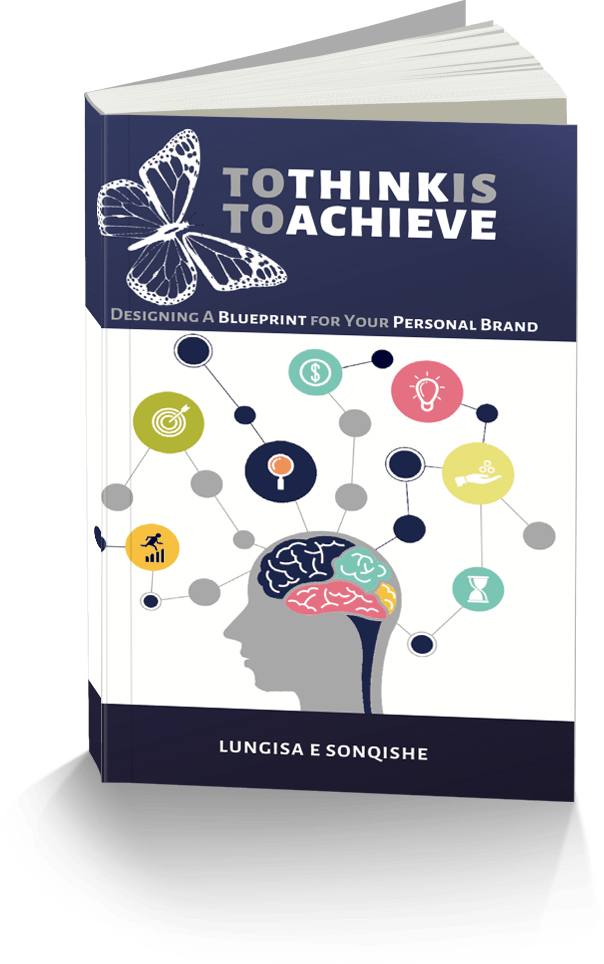Table of Contents
Mental Blocks & Resistance and A Letter to Self
Introduction
We all encounter moments where we feel stuck—times when our motivation disappears, our minds fog over, and our confidence retreats into the background. These experiences are often labelled mental blocks or inner resistance, but they are more than inconvenient obstacles. They are signals—quiet, persistent whispers from within.
Mental blocks arise when our inner world feels threatened or uncertain. Sometimes, we can trace them back to a specific fear: fear of failure, rejection, judgment, or even success. Other times, the fear is harder to name—buried beneath layers of expectation, comparison, or past pain. Whatever form it takes, resistance is rarely random. It is the mind’s way of keeping us safe, even when that “safety” keeps us small.
What if we paused to listen instead of fighting against this resistance or pushing through it with force? What if, rather than silencing our fear, we gave it a voice and then met it with kindness?
In the following letter, I write to the part of me that’s afraid. The part that hesitates, procrastinates, and sometimes forgets its strength. This letter is not a confrontation but a conversation—a moment of connection with the quieter, more vulnerable corners of the self. Perhaps you’ll be inspired to write your own letter after reading it.
Let’s begin.
The Letter: A Direct Dialogue with Fear

Dear You, the One Who’s Afraid,
I see you.
You’ve been here for so long—longer than I ever realised.
You show up not with fireworks but with silence, hesitation, and a quiet, gripping sense of no, not yet.
I used to be angry with you. I mistook you for weakness, for laziness, for failure. But I’m learning now that you are none of those things. You are fear. And fear, in your way, is trying to protect me.
You have been the voice that kept me from speaking when I felt too exposed.
You’ve held me back from opportunities because you were terrified of what might go wrong.
You whispered that perfection was the only safe path, so I froze whenever I couldn’t guarantee it.
You tried to help. I know that.
Somewhere along the way, you learned that safety was found in staying small. That if we didn’t try, we couldn’t fail. If we didn’t speak, we couldn’t be judged. If we didn’t hope, we wouldn’t be disappointed.
And I understand why you believed that.
You were shaped by old wounds, stories, and fears passed down or lived through.
But we are not there anymore.
We are here, now—and I want you to know something: I’m ready to move forward. And I want you with me—but not in the driver’s seat.
You don’t need to shout, freeze me in place, or tighten my chest every time I step towards something new. I will listen to you, but I won’t obey you. Not always.
Because growth lives beyond your walls, I know now that courage isn’t the absence of fear—it’s the decision to walk beside it.
So, I will take this next step, even if my hands shake.
I will start, even if I’m not ready.
I will speak, even if my voice trembles.
And you, Fear—you can come along. You can sit beside me.
But I will lead.
With compassion,
Me
Inward Reflection

Reading a letter like this can stir something tender—perhaps a sense of recognition or even resistance. That’s perfectly natural. Fear doesn’t always like being named, and vulnerability rarely arrives without some discomfort. But this is where healing begins: not by pushing fear away, but by inviting it to speak and listening with gentleness.
If the letter resonated with you, consider writing one of your own.
You don’t need to be a writer. You only need to be honest.
Here are a few questions to guide you inward:
- What are you afraid of right now, truly?
- When did this fear first appear in your life?
- In what ways has fear been trying to protect you?
- What would you say to the part of you that’s holding back?
Give yourself permission to write without editing or judging. You can write it by hand, speak it aloud, or type it out and delete it afterwards. The process matters more than the product. You’re building trust with yourself—offering compassion to the parts that usually hide in silence.
Sometimes, naming fear softens it. Sometimes, it helps you see that what once felt like a wall is just a door waiting to be opened with care.
Closing Thoughts
If fear is a companion on the growth path, self-compassion must be the map.
You won’t always feel ready. You may not always feel brave. But each time you turn toward your resistance with curiosity instead of criticism, you reclaim more of your strength.
Mental blocks are not flaws to be fixed—they are invitations. They invite us to pause, reflect, and tend to the quieter needs beneath our ambitions. Sometimes, they are asking for safety. Other times, they simply ask for reassurance that we’re capable, even when we don’t feel it.
Writing to your fear—acknowledging it, understanding it, walking with it—doesn’t weaken you. It makes you deeply, powerfully human.
So the next time you find yourself frozen before a blank page, a difficult decision, or a bold new step, try this:
Don’t push. Don’t force. Don’t run.
Instead, ask: What part of me is afraid right now?
And then, write it a letter.
Fear may not disappear, but it will soften.
And in that softening, space appears—for action, truth, and becoming.
You are not behind.
You are not broken.
You are simply becoming someone brave enough to meet fear with love.
Books for Further Reading
- The War of Art by Steven Pressfield — A classic on resistance and creative struggle.
- Big Magic by Elizabeth Gilbert — Encourages playful, fearless creative living and how to engage with fear as a partner, not a barrier.
- The Mountain Is You by Brianna Wiest — Focuses on self-sabotage and the psychology behind personal transformation.
- Radical Acceptance by Tara Brach — Beautifully explores the healing power of compassion toward the self.
- Feel the Fear and Do It Anyway by Susan Jeffers — A practical guide to understanding and working through fear-based mental blocks.

Find Out More & Book a Session
About Lungisa E Sonqishe
ELEVEN11:Mindset+ : eleven11mindsetplu.com



























